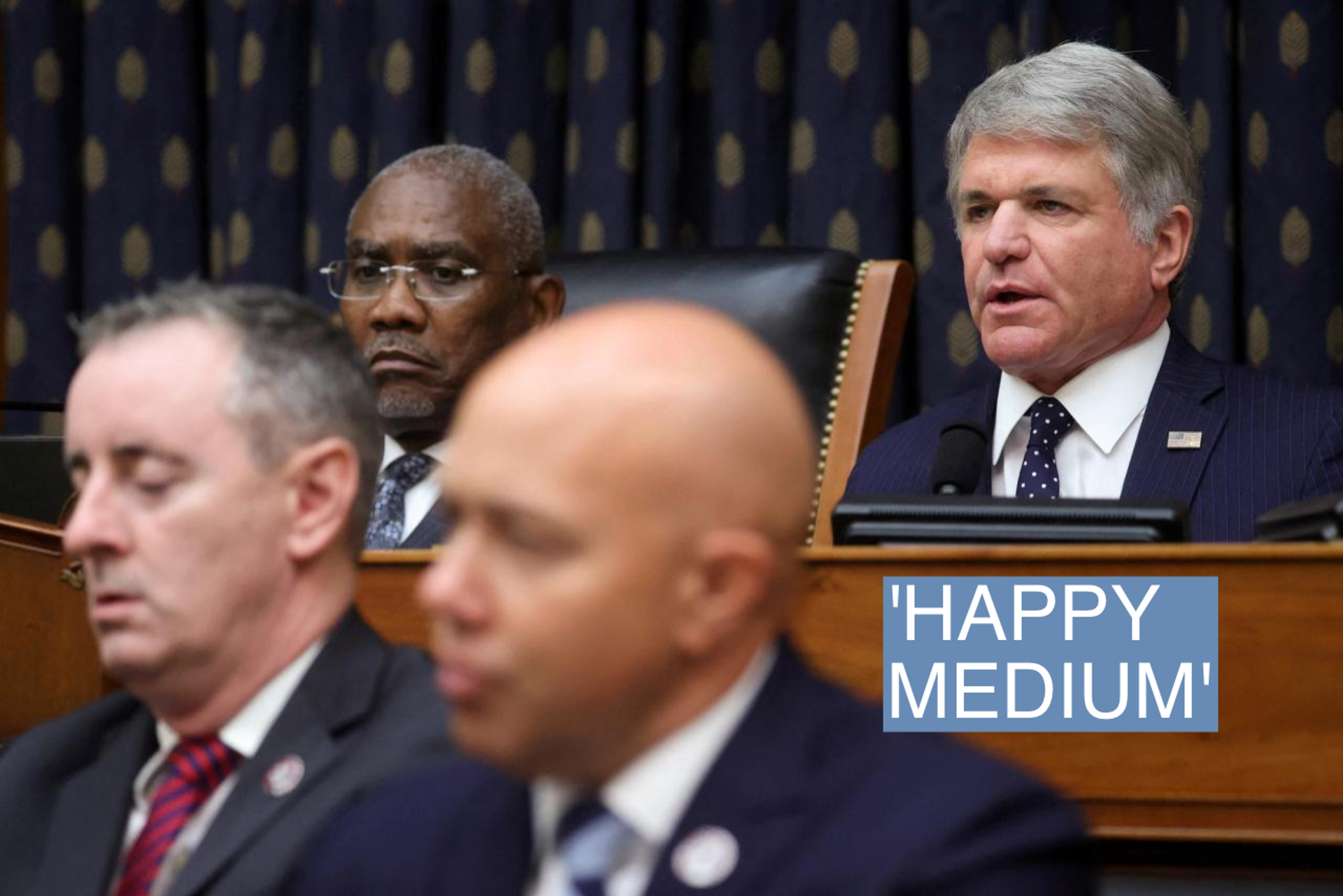The News
Rep. Michael McCaul, R-Texas has spent weeks pushing his bill to empower the White House to ban TikTok. After a bipartisan grilling of TikTok’s CEO last week, something close to that policy is looking likelier than ever, and he’s working with Democrats to negotiate a unified approach.
“I think there is pressure to, number one, pass legislation, and I then think there would be a lot of pressure for the administration to ban it,” McCaul, who chairs the House Foreign Affairs Committee, told Semafor in an interview in his office on Capitol Hill.
McCaul discussed the path forward for TikTok-related legislation a day after House Speaker Kevin McCarthy, R-Calif. vowed action “to protect Americans from the technological tentacles of the Chinese Communist Party.” McCarthy has also expressed optimism about a bipartisan deal.
Republican leaders in the House still have not identified which of several competing bills they prefer as a starting point. But McCaul is working with Sens. Mark Warner, D-Va. and John Thune, R-S.D., whose RESTRICT Act has 19 cosponsors and White House backing, to reach a compromise that would address national security concerns lawmakers have raised over the app’s Chinese ownership.
In this article:
Morgan’s view
It’s more likely than ever now that the government will act against TikTok, either by banning the app in the U.S. or forcing ByteDance to sell its shares in the company. But there’s a tension in Congress over how far legislation should go.
McCaul said he’s concerned that the RESTRICT act gives too much discretion to the Commerce Department and Biden administration on a menu of potential responses, including divestiture or a ban, rather than compelling them towards rapid action.
“Mine is a little tougher, if you will. I think theirs is not and so we’re trying to get a happy medium,” McCaul said. “We’d obviously like to be bipartisan.”
McCaul’s bill, the DATA Act, would give President Joe Biden the power to sanction companies that transfer sensitive data to China and would require him to make a decision on whether to sanction TikTok and its Chinese parent company ByteDance within 90 days of its passage.
He suggested his bill could be the starting point in the House Rules Committee and that lawmakers could then “add parts” of the bill from Warner and Thune to it.
The Committee on Foreign Investment in the U.S., or CFIUS, has been negotiating with TikTok for years and is said to have recently told ByteDance to sell its shares in the company, though talks are still ongoing. Legislation from Congress like the RESTRICT Act would give the Biden administration a bigger stick to wield in those negotiations, which some Democrats may see as a viable path forward.
“The Warner bill gives the president the authority to sanction and also helps strengthen the CFIUS process which would actually give us more leverage to make deals and to make sure that our national security interests are covered and that Americans’ data is protected,” Rep. Gregory Meeks, D-N.Y., the top Democrat on the House Foreign Affairs Committee, told my colleague Kadia Goba earlier this month.
A Warner spokesman said that the senator looked forward to working with McCaul, but noted that “mandatory bans have run into legal challenges in the courts” in the past.
House Republicans, who passed McCaul’s bill in committee along party lines earlier this year amid Democratic concerns about its breadth, may not trust the Biden administration to take the lead in negotiations when they can nudge them towards a ban. On the Senate side, Sen. Josh Hawley, R-Mo. is trying to force a vote on his own bill to rapidly ban the app. If conservatives rally behind a harder line approach that ties the administration’s hands, it could derail bipartisan talks or prompt a veto threat.
McCaul told me that he thinks multiple Biden administration officials would recommend the app be banned. Officials like FBI Director Christopher Wray have publicly raised concerns about the app. Commerce Secretary Gina Raimondo, however, acknowledged recently that a ban on the app popular among young Americans would be bad politics.
“The national security people in the administration, they understand and they would be for a ban. And I think you would certainly have Cabinet officers who would recommend a ban, that I’m aware of. And I think it would put pressure on the president,” McCaul said.
Room for Disagreement
There’s a small but vocal cohort of lawmakers in Washington opposed to the idea of banning the popular app, including progressive icon Rep. Alexandria Ocasio-Cortez, D-N.Y. Ocasio-Cortez, one of the most prominent social media mavens in politics, took to TikTok to argue against a ban over the weekend. She’s a powerful voice for the company to have on its side, in addition to an army of young influencers and organizations like the ACLU that have warned about the First Amendment ramifications of a crackdown.
Notable
The Associated Press writes that there’s a growing disconnect between the estimated 150 million American TikTok users who are worried about not being able to use the platform, and lawmakers who want to ban the app.
